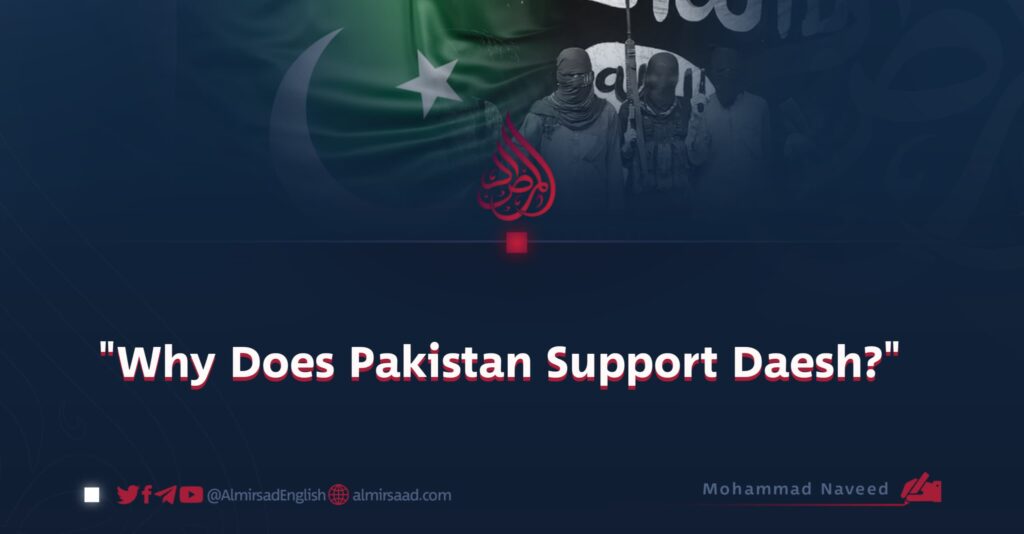Mohammad Naveed
Reuters news agency recently reported that the leadership of the Daesh-Khorasan Branch in Balochistan, Pakistan, remains active. The amicable relations between Pakistan and the Daesh-Khorasan branch are a stark reality that cannot be overlooked. Pakistan aligns itself with Daesh for two primary reasons:
Pakistan has aligned itself with Daesh with the objective of destabilizing Afghanistan on one front, while simultaneously applying pressure on the Islamic Emirate and its leadership on the other.
The potential utilization of Daesh as a formidable instrument has been acknowledged by Anwar ul-Haq Kakar, the former interim Prime Minister of Pakistan, who explicitly stated, “If Islamabad were to offer refuge to the Daesh group or support them, how would Kabul react?”
This is not merely rhetoric; it is a factual account. These occurrences transpire at a juncture where, subsequent to the Islamic Emirate of Afghanistan assuming governance, ISIS faced severe suppression. They found themselves with no secure haven in Afghanistan, resulting in the disappearance of key Daesh figures.
Consequently, they were forced to flee to Pakistan and sought refuge in Pakistani military and intelligence guesthouses. The Pakistani military establishment presently leverages Daesh from there to apply pressure on the incumbent Afghan government.”
When a country itself engages in discussions about providing refuge to or supporting terrorist groups like Daesh, while simultaneously exerting pressure on other nations, it can lead to international criticism and questions. This phenomenon often involves contradictions, where a country may find itself facing the threat of terrorism from Afghanistan or even becoming a victim of terrorist attacks.
Pakistan’s policy is both ironic and laughable. It fosters terrorists while attributing terrorism to Afghanistan. Nevertheless, over the past four decades, the region and the world have discerned the chief wellspring of terrorism and its manipulation. Even the United States and its allies concede that there is no imminent threat originating from Afghan territory. It is incumbent upon Pakistan to cease this double-dealing and assume accountability for its actions!
The Islamic Emirate of Afghanistan (IEA) has consistently reassured regional and global nations that its territory will never be employed against others. It prohibits armed groups from resurfacing in Afghanistan and does not allow them to further their personal agendas and disrupt internal and external security. Hence, why does the United States harbor apprehensions regarding potential terrorist risks in Afghanistan?
Interestingly, while Pakistan and some other countries express concerns about terrorist threats from Afghanistan, dismisses such claims.
Conversely, the United States raises concerns regarding the presence of terrorist factions in Afghanistan. Only a few weeks ago, Thomas West explicitly articulated during discussions with Pakistani officials that the United States aligns itself with Pakistan in combating terrorism.
Pakistan, in adherence to its historical modus operandi, once more fabricates scenarios for Afghanistan’s prosperity and stability. It strives to further its own ulterior motives and burden Afghans with terrorism and insecurity. Nevertheless, the global populace discerns that Pakistan serves as a hotbed for terrorism and consistently exploits terrorists for its political aims against other nations. Yet, the United States chooses to turn a blind eye.
The United States persistently advances inconsistent claims to safeguard its vested interests. It attempts to exert pressure on the Islamic Emirate of Afghanistan through its policies and initiatives while imposing its demands. Simultaneously, it perpetuates the narrative that terrorism still poses a threat in Afghanistan, attempting to demonstrate that it does not recognize Afghanistan and the Islamic Emirate. The world questions the United States: What would its response be if this narrative were absent?
